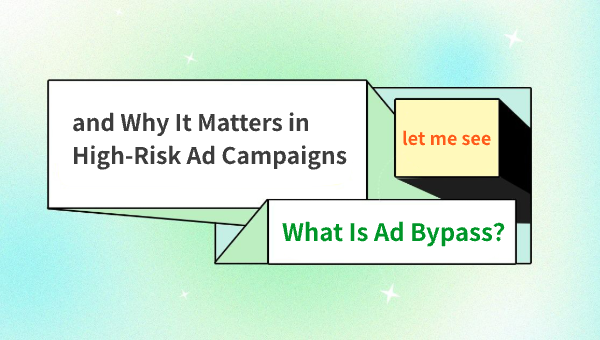What Is Ad Bypass and Why It Matters in High-Risk Ad Campaigns
Ad Bypass is a critical tactic used by performance marketers and affiliates to serve high-converting ads while avoiding disapprovals or account bans. As platforms like Facebook, Google, and TikTok increase scrutiny, bypassing ad review has become a necessary survival skill.

What Does “Ad Bypass” Mean?
Ad bypass refers to a method of separating the content shown to ad reviewers from what’s shown to real users. It typically relies on traffic filtering and page redirection technologies, such as cloaking systems.
Why Is Ad Bypass So Common?
Platforms flag aggressive or restricted offers
Ads fail approval due to misleading content
Advertisers lose accounts before scaling
Bypass tech enables safe scaling with less risk
Key Technologies Behind Ad Bypass:
Visitor Classification
Using data such as IP ranges, ASN, time zones, and browser signatures to detect bots or reviewers.Dynamic Redirection Engine
Send bots to clean white pages, while real users are redirected to optimized conversion pages.Rotating Domains & DNS Defense
Automatically swap domains or pages once flagged.Live Log Monitoring & Geo Filtering
Detect suspicious visits and block non-converting zones or “audit windows.”
Is Ad Bypass Legal?
Bypassing itself isn’t illegal—but violating platform rules is. That’s why smart marketers use clean, modular cloaking systems like those offered by AdCloaking.com to mitigate risk while staying agile.
Final CTA:
If you're tired of seeing your ads get rejected or your accounts banned, it’s time to get smart. AdCloaking.com provides advanced, scalable ad bypass solutions for marketers who want results. Start your free trial now and take control of your campaigns.
